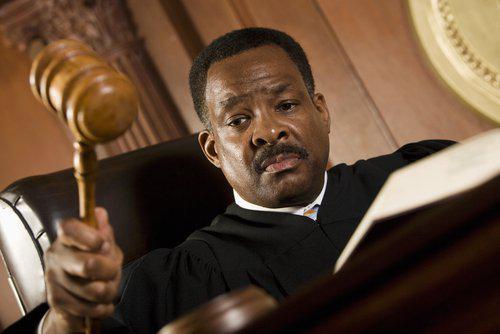Understanding Plea Bargains
 Many people assume that the majority of criminal sentences are issued by a judge after a trial where both sides have had a full opportunity to tell their sides of the story, but that does not happen as often as people think. In reality, the majority of criminal sentences of the United States are assigned by plea bargain rather than by trial. Plea bargains are a lot like settlements in civil cases. Rather than both sides spending the time and money to develop a full trial workup and risking a loss, the two groups, the government and the defendant, negotiate a penalty that both can tolerate.
Many people assume that the majority of criminal sentences are issued by a judge after a trial where both sides have had a full opportunity to tell their sides of the story, but that does not happen as often as people think. In reality, the majority of criminal sentences of the United States are assigned by plea bargain rather than by trial. Plea bargains are a lot like settlements in civil cases. Rather than both sides spending the time and money to develop a full trial workup and risking a loss, the two groups, the government and the defendant, negotiate a penalty that both can tolerate.
This mechanism of resolving criminal cases is both important and under reported. In fact, according to statistics compiled by the Bureau of Justice Assistance, an arm of the U.S. Department of Justice, between 90 and 95 percent of federal criminal cases are resolved by plea bargains rather than by trial.
Why Plea Bargains Are So Common
The justice system did not always function this way. The change has occurred over the last 30 years, as mandatory minimum sentences and sentencing guidelines became more common. These sorts of sentencing regulations took sentencing discretion away from judges and instead tied sentences more closely to the charges that were brought. From a functional standpoint, this meant moving more sentencing authority into the hands of prosecutors who made the decision about which charges to bring against a defendant.
How Plea Bargains Work
Plea bargains are unlike many parts of the criminal justice system because, for the most part, they take place without the supervision of the judge. The prosecutors and the defense attorney enter into negotiations in an attempt to resolve the case more quickly, rather than relying on a trial. In essence, the defendant is offering to plead guilty to the crime in exchange for a reduced sentence.
Prosecutors can accomplish these reduced sentences in one of two ways. First, they can agree to adjust the charges against the defendant. If the prosecutor brings a less serious charge, then the court will be forced to impose a shorter sentence. Second, the prosecutor has the power to recommend a certain sentence to the judge. Importantly, judges are not required to respect this recommendation. If the judge believes that the sentence called for was not harsh enough, then they have the authority to break the plea bargain, since it was made between the prosecutor and the defendant. However, such decisions are not common.
If you have recently been charged with a crime, the assistance of an experienced Milwaukee criminal defense attorney can make all the difference. Our team of skilled attorneys can help fight for you in and out of court to make sure that you get the best outcome possible for your case.






